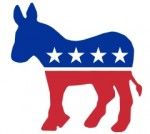What’s Left: Money Shouldn’t Talk

Money isn’t speech, and corporations, despite their legal status, are not people. But conservatives on the Supreme Court clearly and unanimously disagree. Last week, the Court elevated the old “money talks” idiom to a whole new level when it ruled that the government could not limit the contributions of corporations to political campaigns.
The notion of money as speech is an unfortunate one. Spending money is not a form of expression. When one contributes to a political campaign, they are not doing so to express to the world which candidate they support. They do it in the hopes that the candidate will win. True expression is putting a sign on your lawn, or wearing a campaign T-shirt (like the Obama-Biden one I am wearing right now), or engaging in political discourse with a clear voice.
To anyone following the case from its beginning, the outcome should come as no surprise. Conservative justices were skeptical, dismissive and even sarcastic during proceedings and the end result was clear from the start. But that the 5-4 split occurred along ideological lines is concerning, as this should not even be a political decision.
There is no reason for this to be a partisan issue. This is not, or should not be, a left vs. right issue. Rather this is a true common man vs. big business, Main Street vs. Wall Street issue.
And yet the anti-bank, anti-Wall Street and anti-big business Tea Party Main Streeters are oddly silent. That conservatives mask this as a First Amendment fight is an indication of just how deeply they want to hide their pro-big business agenda.
Granted, Supreme Court justices are supposed to be insulated from current politics and one could argue that they simply haven’t caught populist fever. Even so, the five conservative judges hardly followed their own judicial philosophy in this case.
Citizens United took the Federal Election Commission to court after it prohibited the broadcast of its documentary “Hillary: The Movie” during the 30 day period before the Democratic primary. Yet instead of resolving that simple question (whether or not the documentary qualified as electioneering) and letting the case go, the Supreme Court took the opportunity to unravel the Bipartisan Campaign Reform Act (aka McCain-Feingold or BCRA) for political gain by overturning two case precedents. This is a perfectly packaged case of judicial activism, the very philosophy that conservative senators were concerned about during the Sotomayor confirmation hearings last summer.
These same justices who preach judicial restraint and original intent cannot say that James Madison and the rest of the founding fathers had corporations in mind when they drafted the Constitution and the Bill of Rights. The concept of corporate personhood many years away and the founding fathers could never have imagined the levels of size and wealth (and therefore influence) that some companies have reached.
In his dissent, Justice Stephens passionately dismissed the decision as opening the gateway for corruption in a political system already inundated with money and criticized the majority for its active role in the case. Commenting on the overturned precedents and the court’s ruling, Stevens wrote, “The only relevant thing that has changed since is the composition of this court.” In the final line of his dissent, Stephens added, “While American democracy is imperfect, few outside the majority of this court would have thought its flaws included a dearth of corporate money in politics.”
In his radio address, President Obama criticized the decision saying, “I can’t think of anything more devastating to the public interest. The last thing we need to do is hand more influence to the lobbyists in Washington or more power to the special interests to tip the outcome of elections.”
At this point, congressional leaders need to get creative with legislation to right the wrong committed by the Supreme Court. Though a constitutional amendment might be beyond political reach, it would be the best way to lay the issue to rest. According to some news sources, the White House is scrambling to soften the impact of the court’s decision by forcing corporations to identify themselves in advertisements. If this is about freedom of speech and expression, conservatives should have no issue with this. But don’t count on it.








